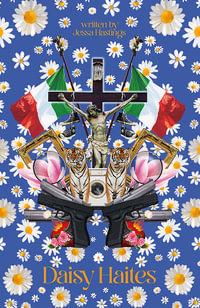"In Ludic Ubuntu Ethics Professor Mechthild Nagel artfully brings together diverse understandings and practices of justice and criminal justice in ways that move us out of the tangle of justifications and denial that underlie and perpetuate the historical and contemporary myth of (criminal) justice and the righteousness of punishment and control and oppression through governmental institutions, uniquely including child protective services. Professor Nagel untangles the threads of power and violations of human dignity embedded in current justice beliefs and surveillance practices built around various conceptions of 'the other'. In doing so, Nagel makes a place for alternative indigenous practices and processes that move our thinking from 'controlling and punishing the other' to 'recognizing and strengthening us', to preventing behaviors traditionally met with punishment (so, no need for the carceral state), and embodying an ethic and view of community built on understanding human existence and experience (behavior and its meaning) and support for human dignity."
- Lucien X. Lombardo, Professor Emeritus, Old Dominion University, Norfolk, VA
"Dr. Nagel's liberation model frees justice thinking from retributive models that blame, ban, and punish. The Ludic-Ubuntu framework brings relational repair to the forefront of current justice studies through integration with traditional, indigenous, and ancient humane practices. This dignity and joy-enhancing vision for resilient communities puts constructive peace practices within reach of scholars and activists on the cutting edges of criminology, political theory, race and community relations, and peace education."
- Janet C. Gerson, Education Director, International Institute on Peace Education
"This manuscript is a fantastic addition not only to abolitionist literature, but especially to transformative justice literature. We owe Mechthild Nagel much for this deeply valuable work. Her superb analysis of policing, jurisprudence, western ideas of the criminalizing system such as revenge, vengeance, surveillance, policing, the criminalizing of the black body and the colonized, etc., not withstanding, what remains deeply appealing and amazing about the book is that it is a very rare volume of engagement with transformative justice theory and praxis. That she has done this from the western lens AND while engaging indigenous paradigms of justice AND fully relating it to what most of her readers will be familiar with (restorative justice) makes it even more amazing. The final chapter (5), the likes of which is nowhere else to be found, will make the book a much-discussed one."
- Michael J. Coyle, Professor, California State University, Chico
"This thought-provoking study challenges our acceptance of punishment as a necessary element of rational justice deeply ingrained in modern systems of law. Combining a deep and sensitive reading of Ubuntu - the indigenous African ethics of human interrelatedness - with elements of play and playful thinking, Ludic Ubuntu proposes an alternative model of relational and transformative justice which is meant to counter and transcend the agonistic thinking at the core of Western penal justice systems. An equally spirited and substantial contribution to an emergent body of critical philosophical work on punishment theories from the perspective of indigenous ethics and practices of reparative justice."
- Laura A. Zander, Research Fellow, University of Muenster
"Philosopher activist Mechthild Nagel demonstrates the insidious entanglement of mass incarceration in the west with coloniality for the west's Others, but she offers more. In dialogue with African and indigenous scholars, Nagel lays out a visionary model for a Pan-African ethics. An Ubuntu theory of justice embracing humor and playfulness rather than the spirit of revenge is her lucid and creative response to a call from beyond negativity. Here is an ethics that opens a space for a generative social movement and a positive freedom. The result is an extraordinarily insightful contribution to the promise of a real utopia for Africa, and really for us all."
-Cynthia Willett, Professor, Emory University
"Rigorously argued, cogent, and praxis-oriented, Mecke Nagel's Ludic Ubuntu Ethics offers timely ways of imagining decarceral and abolitionist futures. In her careful, comprehensive approach, Nagel contemplates and confronts the many legacies of colonialism and misogyny in the prison system. This book offers abolitionist scholars-activists concrete possibilities for building alternatives to prisons, the police, and child protective services. Nagel provides a comprehensive and deeply thoughtful argument in favor of ubuntu, a loving and playful attitude and way of relating that promises to influence abolitionists and other concerned scholars and activists over the next generation. A truly inspiring book."
- Joshua Price, Professor, Toronto Mentropolitan University
"In this clearly written and brilliantly argued book, Mecke Nagel invites us to a moral imagination of a different society where the individual "I think therefore I exist" is replaced by the collective "I relate therefore I exist." Her concept of ludic Ubuntu is far from being utopian. It is an exhortation to remember ways that have once been framed as "primitive"."
-Marcel Kitissou, Professor, Cornell University
























